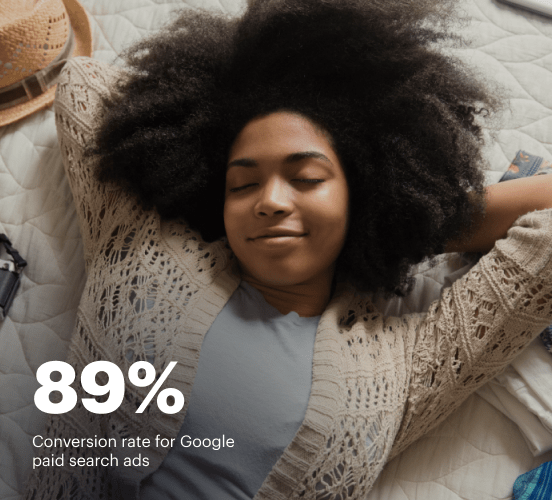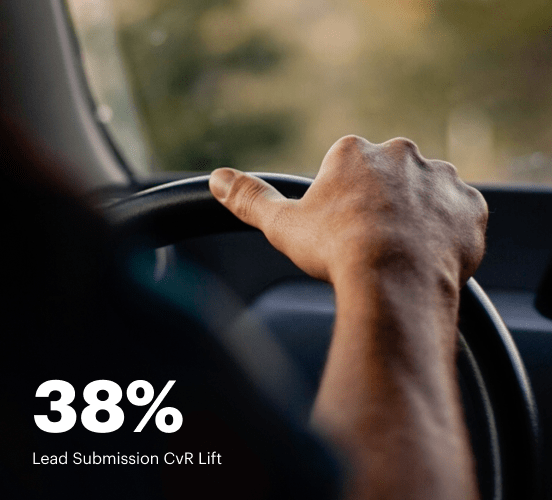How Shopify vs. HubSpot vs. Instapage stack up against each other
Compare Instapage with Shopify and HubSpot to create high-converting landing pages. With personalization, optimization, and collaboration tools, Instapage helps you deliver experiences that drive results.
Get startedSee how Instapage stacks up against the competition
| Feature | Instapage | Other builders |
| Drag-and-Drop Tools | ||
| Conversion-optimized templates | ||
| Manual and AI-powered A/B Tests | ||
| AI content suggestions | ||
| Popups and sticky bars | ||
| Canvas and grid blocks | ||
| Reusable and global elements | ||
| Form and popup builders | ||
| Built-in Heatmaps | ||
| Central analytics dashboard | ||
| Ad-to-page personalization and collections | ||
| Contacts, lists, and email | ||
| Dedicated, full-service CRO experts | ||
| Enterprise-ready platform |
Leading the way in building high-performing landing pages





Why Instapage is the smarter choice for your campaigns
Get everything you need to build, scale, and optimize high-converting landing pages—without coding.
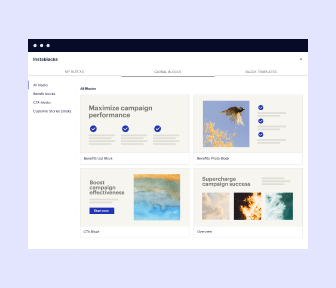
Easier page building without coding
Instapage offers a flexible and seamless page creation experience with a library of 500+ conversion-focused layouts, Instablocks®, a drag-and-drop builder, and AI content generation. With technologies like Thor Render Engine®, you can create on-brand, mobile-responsive landing pages that load quickly and start converting during initial visitor clicks.
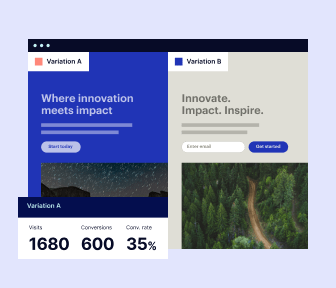
More insights — better results
Instapage lets you see in detail how each landing page experience and variation is performing so you can make targeted changes that boost page conversions. Use heatmaps for a better understanding of on-page activities, run A/B tests and AI-assisted experiments, and then track and evaluate results within robust analytics dashboards.
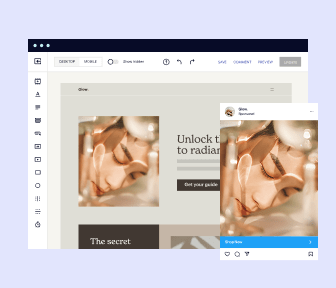
More personalized experiences
Instapage lets you quickly create high-performing landing pages tailored to each of your ad campaigns. Deliver personalized experiences for distinct audiences using dynamic text replacement. Effortlessly align specific advertisements to unique pages with AdMaps. Monitor audience-level metrics using our advanced data tools.
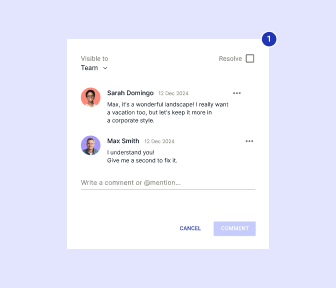
Built-in collaboration
Instapage collaboration capabilities bring your entire team together to speed up the process of landing page review, approval, and launch. No more frustrating and unnecessary revisions or edits scattered across emails. Provide instant feedback, conduct real-time page edits, and securely share your pages with outside stakeholders.
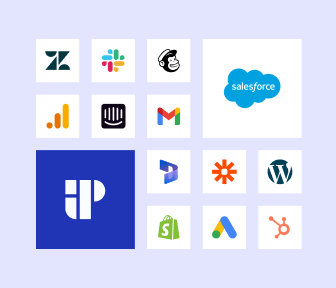
Free up time for your business
Invest time into business growth, not busy work. Launch landing pages faster with reusable forms and templates. Build once, reuse forever.
Explore all integrations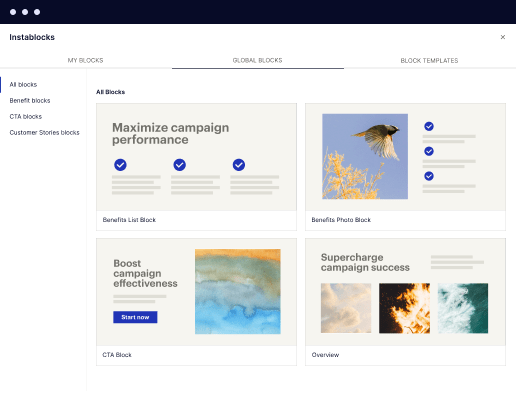
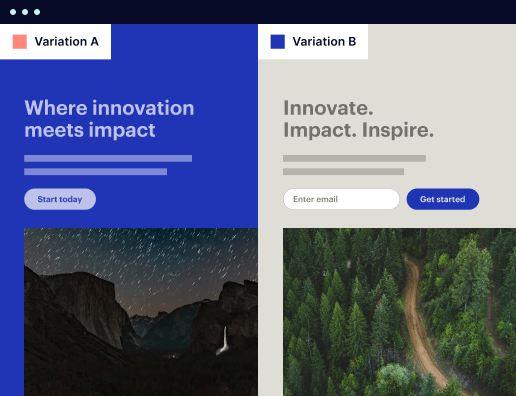
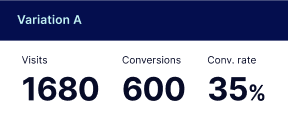
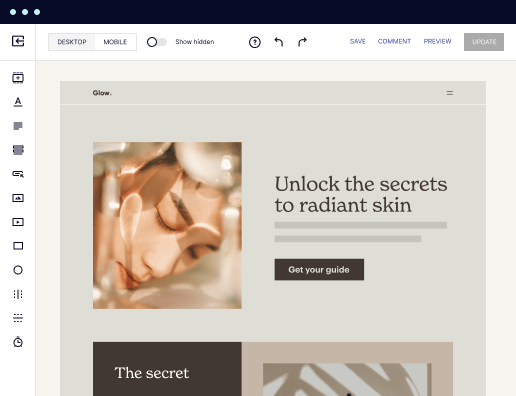

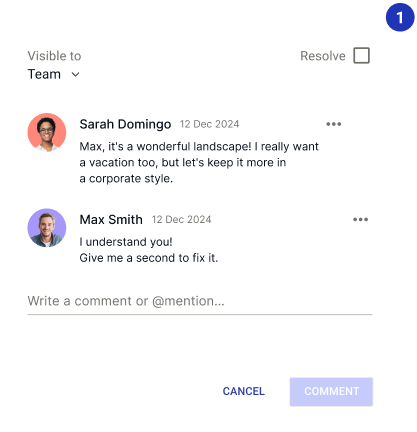
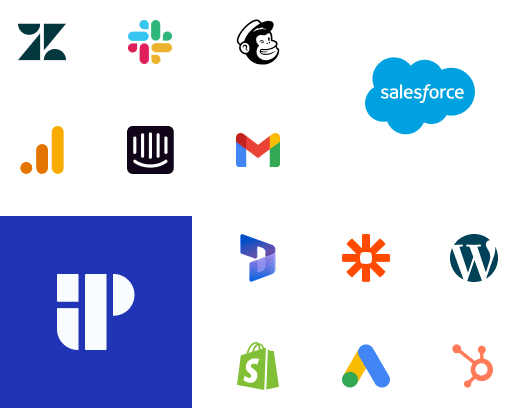
Easier page building without coding
Instapage offers a flexible and seamless page creation experience with a library of 500+ conversion-focused layouts, Instablocks®, a drag-and-drop builder, and AI content generation. With technologies like Thor Render Engine®, you can create on-brand, mobile-responsive landing pages that load quickly and start converting during initial visitor clicks.
More insights — better results
Instapage lets you see in detail how each landing page experience and variation is performing so you can make targeted changes that boost page conversions. Use heatmaps for a better understanding of on-page activities, run A/B tests and AI-assisted experiments, and then track and evaluate results within robust analytics dashboards.
More personalized experiences
Instapage lets you quickly create high-performing landing pages tailored to each of your ad campaigns. Deliver personalized experiences for distinct audiences using dynamic text replacement. Effortlessly align specific advertisements to unique pages with AdMaps. Monitor audience-level metrics using our advanced data tools.
Built-in collaboration
Instapage collaboration capabilities bring your entire team together to speed up the process of landing page review, approval, and launch. No more frustrating and unnecessary revisions or edits scattered across emails. Provide instant feedback, conduct real-time page edits, and securely share your pages with outside stakeholders.
Free up time for your business
Invest time into business growth, not busy work. Launch landing pages faster with reusable forms and templates. Build once, reuse forever.
Explore all integrationsGet started with Instapage in a few steps
-
Create your Instapage account
Start with Instapage by signing up via Google or your email. You'll get access to a free 14-day trial to discover Instapage capabilities. Feel free to cancel anytime during the 14-day trial if you decide that our product is not suitable for your business. -
Build and personalize your page
Create your first landing page from scratch or choose a template from 500+ customizable layouts. Use the drag-and-drop builder to add page elements, fonts, and backgrounds, refine content with AI, or add custom HTML, Javascript, and CSS. -
Review and make edits
Collaborate on page designs and streamline review processes. Invite your team members and stakeholders to review, edit, and provide feedback on your landing page. Collaborate knowing your page is confidential and only accessible to authorized users. -
Publish and track page performance
Publish your page to a domain or custom URL. Connect your pages to the ads you've created and track page performance within the analytics dashboard, run A/B tests and AI experiments, analyze results, and continuously optimize your landing page to maintain high conversions.
Instapage vs. Shopify vs. HubSpot – A Comprehensive Comparison
Choosing the right landing page builder is crucial for any marketing strategy, much like assembling the perfect team for an epic battle. When weighing options like Instapage, Shopify, and HubSpot, you want to consider which platform will supercharge your conversions and enhance user experience. This article will provide a detailed comparison of these three contenders, each bringing unique strengths to the table. Readers can expect to glean insights while enjoying a friendly debate among these digital heavyweights. After all, landing pages are vital to marketing success, so a proper analysis is essential. (The journey of discovering which tool suits your needs best is valuable, and by the end, you’ll feel empowered to make an informed choice. Are you ready to uncover the capabilities of each platform and find the perfect match for your business objectives?)
Meet the Major Players
In one corner, we have Instapage, a platform that offers sophisticated landing page solutions designed for conversion optimization. Instapage is tailored for marketers focused on high-stakes customer acquisition and retention, facilitating streamlined marketing approaches to enhance brand trust. Then we have Shopify, primarily an e-commerce platform that also provides landing page capabilities. It integrates seamlessly with online stores, making it an all-in-one solution for retailers. Finally, HubSpot stands out with its robust marketing and CRM features. Known for its inbound marketing prowess, HubSpot enables businesses to build landing pages that integrate closely with their overall marketing strategy. The competitive landscape these tools create encourages users to choose wisely based on their specific needs. (Understanding the unique attributes of each platform helps businesses identify which tool aligns with their marketing goals and user experiences.)
Round One - Feature Showdown
Template Variety and User-Friendly Design
When it comes to features, the variety of templates and ease of use are critical components in selecting the ideal landing page builder. Shopify’s templates are attractive but primarily focused on e-commerce functionality. While it provides decent options for landing pages, those seeking highly customizable designs might feel limited here. HubSpot, on the other hand, offers a range of templates tailored for lead generation along with their extensive marketing tools. However, some users might find the learning curve a bit steeper due to its comprehensive functionalities. Instapage shines brightly in this round as it empowers marketers with over 500 customizable templates designed specifically for high conversion rates. These templates are built to address specific user needs while maintaining user-friendliness. (Instapage takes the cake when it comes to extensive design flexibility, which is perfect for crafting tailored experiences that resonate with target audiences.)
Instapage: A Champion for Customization and Conversion
Instapage isn't merely a tool; it serves as a partner for marketers dedicated to boosting customer conversion. Its advanced A/B testing features, real-time editing, and collaborative tools ensure that teams can optimize their landing pages effectively. In addition, Instapage's focus on personalized landing experiences allows brands to showcase their unique offerings. Using features like Instablocks, users can save and reuse sections across different pages, saving considerable time while streamlining the design process. These tools enable marketers to implement strategic changes quickly, which can result in higher conversion rates. Instapage empowers teams to create relevant page experiences that not only drive sales but also foster brand loyalty and trust among customers. (The value that Instapage brings to the table is evident through its robust capabilities geared toward marketers aiming for superb performance.)
Round Two - The Race for Speed and Performance
Imagine the frustration of a slow-loading landing page; it’s akin to waiting for your favorite coffee too long—it drains user enthusiasm! In terms of speed, Instapage maintains impressive performance metrics and consistently loads pages rapidly, optimizing user experiences and reducing bounce rates. With features designed for top-notch performance, Instapage excels in providing immediate access to content and functions. Shopify also performs relatively well but may encounter speed issues due to heavy transaction activities requiring further resource loading. HubSpot, while generally nimble, may show slower load times with more complex integrations. Readers must grasp the significance of speed in capturing users' attention; fast pages are integral to retaining customers. (Ultimately, Instapage leads this round owing to its focus on speed-enhancement techniques, ensuring marketers don’t lose potential conversions to sluggish load times.)
Instapage Strengths:
- Superb loading speeds with a strong emphasis on performance.
- Utilization of AMP (Accelerated Mobile Pages) for mobile optimization.
- Built-in analytics that monitor page speed and user interactions.
- Advanced caching mechanisms to enhance speed.
Shopify Strengths:
- Sleek, aesthetically pleasing templates optimized for e-commerce.
- Integration with various payment gateways for seamless transactions.
- User-friendly interface that streamlines site management.
HubSpot Strengths:
- Integrates landing pages with comprehensive CRM tools for better tracking.
- Discovers visitor behaviors through detailed reporting.
- Offers a variety of marketing tools that work well in conjunction.
As with many things in life, the speed and performance differences among these platforms hold vital implications for user satisfaction. Instapage boasts remarkable speed attributes making it a front-runner for marketers intent on capturing leads swiftly. While Shopify and HubSpot provide valuable capabilities, they may lag behind regarding loading times compared to Instapage. Marketers must see speed as a pivotal factor that can significantly influence conversion rates and overall success. Prompt engagement is essential, cultivating interest before users drift away.
Round Three - Usability and Learning Curve
Diving into usability, all three platforms strive to create an intuitively navigable environment. Yet, they cater to different user expectations. Instapage showcases an easy-to-navigate drag-and-drop interface, ideal for both novices and experts alike. Users can quickly create and publish stunning landing pages without extensive coding knowledge. Shopify offers a smooth process for e-commerce but has more features to manage, which could confuse beginner users. Meanwhile, HubSpot presents a multifaceted experience where extensive capabilities may overwhelm newcomers, but once mastered, it can become a potent tool. Each platform has educational resources, instructional videos, and community support, ensuring that users can find their bearings. (Regardless of where you stand in your digital marketing journey, confidence grows with time spent on any of these platforms. It’s essential to remind readers that dedication and practice convert them into savvy users.)
Round Four - Customer Support Teams
Customer support plays a vital role in how users perceive the platforms. Instapage personifies support with its responsive team via chat, email, and extensive knowledge bases. Additionally, community forums make finding solutions or sharing ideas accessible. Shopify fondly nurtures its user base, providing round-the-clock support for merchants and an active community to assist with common hurdles. HubSpot's customer service shines with personalized guidance and a wealth of educational resources, perfect for users who want to make the most out of their investment. All three platforms exemplify dedication to customer care, nurturing user confidence. (Support systems act as the reliable sidekicks users can count on when navigating through challenges, emphasizing the value of backing from engaged companies.)
Round Five - Pricing Overview and Value for Money
When considering the pricing models, each platform adopts a different approach. Instapage provides a listing of plans crafted for scalability, ensuring that marketing teams find suitable options. Pricing tailors towards businesses focusing on conversion, reflecting the premium tools they offer. Shopify adheres to its e-commerce roots, offering integrated features valued by merchants but comes with varying costs based on capabilities. HubSpot features diverse service tiers, with paywalls raising extensive capabilities but presenting great value for comprehensive marketing integration. The right choice ultimately depends on individual business priorities – whether that’s affordability, marketing features, or ease of e-commerce management. (Understanding pricing dynamics can potentially unlock exclusive features that cater to your specific needs.)
In the end, Instapage, Shopify, and HubSpot each come with unique strengths that cater to different business needs, creating a fascinating landscape of tools for marketers. The challenge lies in discerning which platform aligns best with your specific objectives. While pricing, usability, and support are significant considerations, the central focus should remain on the features that will fuel conversions. Exploring Instapage offers a superb trial to discover its capabilities firsthand. Your journey is just beginning—explore wisely!

